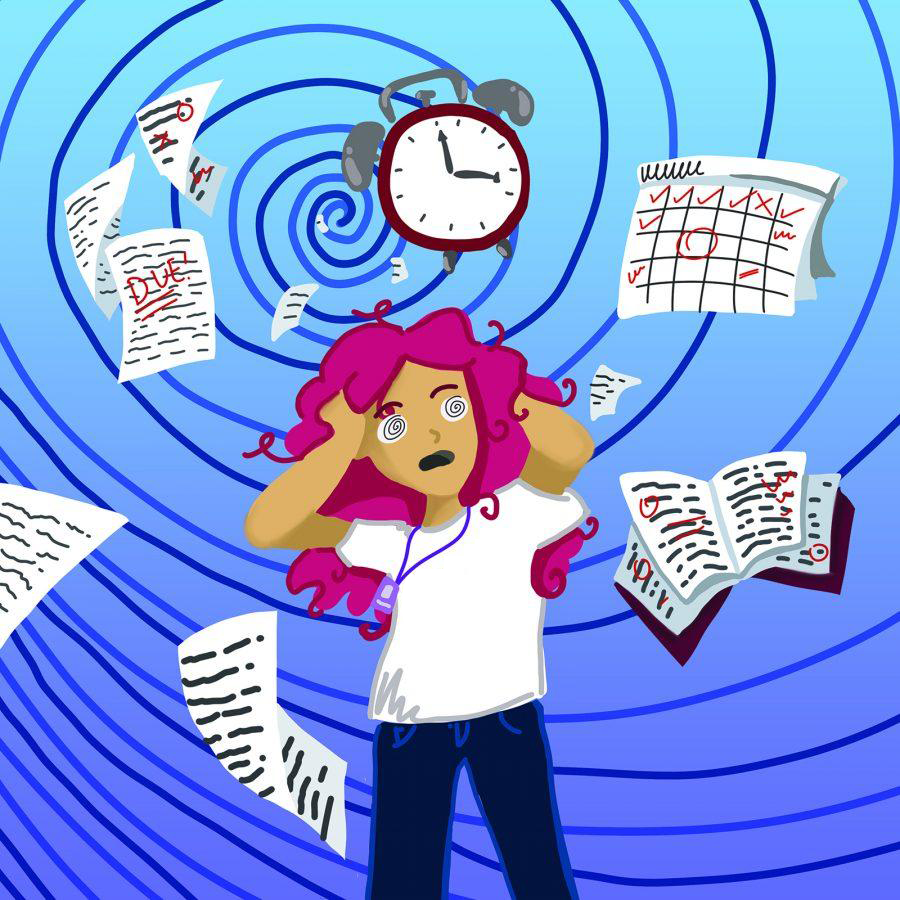I wasn’t looking for an adventure-filled long weekend. I was more hoping to spend a peaceful day curled up in my dorm room, watching the movie I started the week before but never finished. Maybe I’d take the chance to call my friends back home or order some takeout.
Though my day was indeed spent mostly inside my room, it was not at all the relaxing day I had hoped it would be. I spent the day working on assignments and preparing for upcoming exams, which is inevitable when you give students a single day off during midterm season.
Last Friday marked the first of two spring break days granted by the university in lieu of the traditional week-long break, as previously reported by WSN. The decision grew out of concerns of student travel, which would significantly contribute to the spread of COVID-19.
While the university advertised the revised break as a time for relaxation, it fell short of providing students with the time needed to properly de-stress.
Unsurprisingly, I wasn’t the only one.
Steinhardt first-year Elena Pirro usually has one class and one assignment due every Friday for her International Politics class. While she was relieved of those responsibilities last Friday, Pirro spent the day off worrying about upcoming midterms and a project due the following week.
“I think there could have been better communication with the professors,” Pirro said. “Like maybe make it clear to [them] that we should not have midterms or any major assignments due this week [or that] are taking place this week.”
Although the university advised professors to not schedule any assignments or exams in the days directly following the break, students like Pirro had no break at all. Scheduled Friday classes were simply replaced with studying. There was no way out.
“At this point I’m just kind of frustrated with how they administered the mini spring break,” Pirro said. “I don’t think enough thought went into it at all where we were given any capacity to really enjoy it, unless you were already done with your midterms … But I have seven midterms, including a paper. ”
CAS senior Angela Scafidi was also upset about the revised spring break. She normally doesn’t have classes on Mondays or Fridays — the two weekdays when the spring break days are scheduled — which means she spent her spring break Friday like any other one: attending her weekly thesis meeting and working on an essay due that same weekend.
“[The break] just did not make a difference for me at all,” Scafidi said. “I’m working on a thesis this semester, so having a full week off to just, like, take some time to rest and also maybe spend the second half of spring break on the thesis, I would have really appreciated that.”
Like Scafidi, most upperclassmen don’t have classes on Friday — they use those days to work part-time jobs or catch up on their rigorous course load. Scafidi wishes the university would’ve taken this into consideration when revising the spring break schedule in order to alleviate overall student stress.
“I think in general, the school should try to listen to student voices more,” Scafidi said. “I [would have liked] just a little bit more grace and also understanding.”
Like Scafidi, Gallatin first-year Lizzie Mathias doesn’t have class on Friday. Instead, she catches up on homework and runs errands. While the spring break day granted her a little more leniency — she was able to watch “Promising Young Woman” and visit her sister — the feeling of academic dread still hung high above Mathias’s head.
“It definitely [didn’t] feel like a real break, because I still have classes on Monday,” Mathias said. “That feeling of always having assignments [that are] upcoming [is] really hard to sit with all the time. So to never have a week where you can have a break from that is really hard.”
The absence of a traditional spring break has created a never-ending cycle of deadlines for underclassmen and upperclassmen alike, which has led to some students feeling overwhelmed and on the brink of burnout.
“I think COVID has obviously been hard on everybody,” Scafidi said. “Mentally, this semester in particular is kind of stressful for me because of the thesis and job applications. It’s just a lot to keep track of.”
Two three-day weekends, especially when they’re a month apart, are not nearly enough time for students to take a proper break from their academic responsibilities. Had the university honored its original schedule, students would’ve had the chance to spend their spring break exactly as it is meant to be spent: taking a break.
“You’re not supposed to spend spring break studying and stressed and everything,” Pirro said, who — if it weren’t for her towering workload — would have rather spent the day strolling through Central Park or drinking coffee from her favorite cafe in Brooklyn.
Email Natalie Melendez at [email protected].






















































































































































